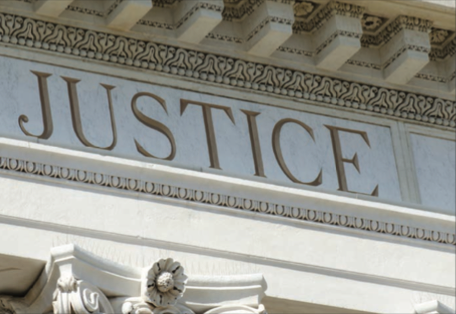
The Equal Access to Justice Act: Winning attorneys’ fees when the government goes too far
The Equal Access to Justice Act (EAJA) provides for the recovery of attorneys’ fees from the government when it acts in bad faith or pursues a matter that isn’t substantially justified. In the case of Gate Guard Services, L.P. v. Perez, the U.S. Court of Appeals for the Fifth Circuit considered whether the Department of Labor (DOL) should pay a plaintiff’s attorneys’ fees under the EAJA.
DOL investigation
The plaintiff was a provider of gate attendants for remote drilling sites of oilfield operators. The gate attendants remained at the drill sites and recorded the license plates of vehicles entering and leaving the oil field. The attendants often lived on-site and were paid daily rates.
A former employee of the plaintiff complained to a friend, who worked as a DOL investigator, that he believed his wages were miscalculated. After speaking with another service technician and a gate attendant, the investigator suspected that the plaintiff had violated the Fair Labor Standards Act (FLSA) by not paying the gate attendants overtime.
The investigator, who had little training in contractor misclassifications, opened a formal investigation. After that investigation, which included only 17 interviews, the investigator calculated a potential penalty of over $6 million in back wages for the misclassification of 400 gate attendants.
2 ways to recovery
The plaintiff sued the DOL, seeking a declaration that it was in compliance with the FLSA. The plaintiff also sought attorneys’ fees, under the EAJA, if it prevailed. The DOL countered by filing its own FLSA enforcement action for back wages and injunctive relief. During litigation, the DOL opposed nearly every motion — even routine ones — and acted belligerently during the discovery phase of litigation.
While the case was pending, the trial court held in another matter that gate attendants weren’t employees under the FLSA. Yet the DOL continued with the pros- ecution. Because of the weaknesses in the agency’s case, however, the trial court granted summary judgment in the plaintiff’s favor.
The EAJA provides two ways for the recovery of attorneys’ fees from the government:
- When a party has acted in bad faith, and
- When the government’s position wasn’t substantially justified (or special circumstances make the award just).
The trial court awarded attorneys’ fees to the plaintiff under the EAJA’s “substantially justified” provision, but it denied fees under the “bad faith” provision. Both parties appealed. The DOL acknowledged that it had made mistakes but asserted that attorneys’ fees weren’t warranted because its position was substantially justified. The plaintiff asserted that attorneys’ fees were due under the bad faith provision.
Bad faith provision
The appeals court reversed the trial court’s decision, finding that attorneys’ fees were appropriate under the EAJA’s bad faith provision, and remanded the case back to the lower court for further consideration. The appellate court held that the trial court had applied too rigid a test for bad faith, which was unsupported by precedent.
Specifically, the trial court had stated that, to constitute bad faith, the plaintiff must have shown that:
- The DOL’s position was meritless,
- This lack of merit was known to the agency, and
- The DOL’s position was advanced or maintained for an improper purpose, such as harassment.
The trial court had concluded that the DOL didn’t act in bad faith because facts pointed in both directions regarding whether gate attendants were employees. Thus, the agency’s position wasn’t entirely frivolous or wholly unsupported. (For more about the frivolous argument aspect of the case, see “The issue of frivolity” at right.)
The appeals court disagreed, holding that the three-part test didn’t afford the court the flexibility required by equity and the interest of justice. What’s more, the prec- edent was to not follow such a test.
The appellate court set forth that bad faith is found when an attorney knowingly or recklessly raises frivolous arguments or argues a meritorious case for the purpose of harassing an opponent. And the court held here that there was bad faith because the DOL’s lead investigator had deliberately destroyed evidence, inflated damages calculations by millions of dollars, and broken protocol in presenting his findings.
Indeed, the appeals court stated that it had upheld awards for attorneys’ fees where the government deliberately concealed information and consistently violated an agency’s internal regulations.
Avenue of recourse
If your organization ever finds itself defending against a government agency using overly aggressive or harassing tactics, remember that the EAJA represents your avenue of recourse. Work closely with your attorney to leverage its provisions effectively.
To view all news stories, click here.